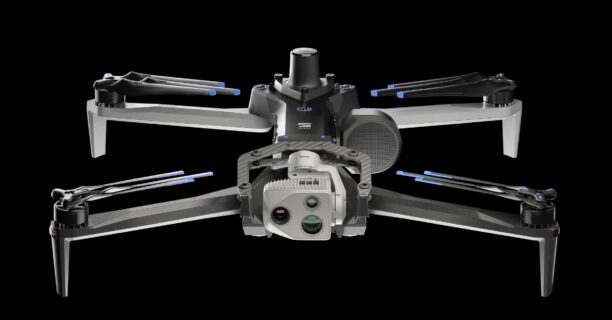Skydio CEO Highlights Challenges in Competing with China
Adam Bry, CEO of Skydio, Inc., provided crucial insights during his testimony this morning before the House Select Committee on the Chinese Communist Party. His testimony was part of the presentation titled “From High Tech to Heavy Steel: Combatting the PRC’s Strategy to Dominate Semiconductors, Shipbuilding, and Drones.” The committee is currently evaluating the impact of Chinese subsidies on critical technologies and their repercussions on US industries.
In opening remarks, Committee Chairman Moolenar said that “…the CCP seeks to control the key technologies and sectors that will determine future conflicts. We are looking in detail at three of these today: chips, ships, and drones.
Chips, or semiconductors, power everything from the guidance system on missiles to satellites, mobile phones, computers, and cars.
Ships transport cargo around the world and form the navies that can blockade global supply lines or enable invasions. This includes the risk to Taiwan, which would cut off the foundries that produce virtually the entire world’s supply of advanced semiconductors.
Unmanned Aerial Vehicles (UAVs) or drones will play a key role in the future of civilian and military airpower.
In all three, America’s industrial capacity has waned while China has gained dominance or is in the process of gaining dominance over each.”
Testimony from US Drone Manufacturer Skydio
Editor’s Note: for clarity, article prepared based upon the published version of Bry’s remarks.
Bry began his testimony by emphasizing Skydio’s pioneering role in aerial robotics. As the co-founder of the largest US manufacturer of small drones, he highlighted the company’s advancements in artificial intelligence (AI) and autonomy. “Skydio drones use AI to understand the environment and to plan and execute complex tasks,” he explained, noting the transformative potential of autonomous aviation in democratizing access to flight technology.
Skydio, founded in 2014, has grown from a small startup to a significant player in the drone industry, supplying over 40,000 drones to more than 2,000 enterprise and government customers. These customers include various branches of the US military, public safety agencies, and utility companies. Bry underscored Skydio’s mission to build the world’s best automated data capture platform, designed to operate in the most dangerous and critical environments.
A central theme of Bry’s testimony was the competitive landscape dominated by Chinese companies. He recounted the aggressive tactics employed by these companies, such as undercutting prices and intimidating distributors, which have posed significant challenges to American manufacturers. Despite this, Bry expressed confidence in Skydio’s competitive edge, leveraging America’s strengths in AI and autonomy. “In 2024, Skydio is competing—and winning—on the strength of our products,” he stated.
The Increasing Role of Small Drones on the Battlefield
Bry highlighted the strategic importance of the drone industry for national security, using Ukraine as a case study. “In Ukraine, drones are essential,” he noted, illustrating the dependency on Chinese drones and the risks involved. He pointed out that Chinese companies have imposed export controls and geofencing features, complicating Ukraine’s defense efforts and underscoring the need for secure, reliable alternatives.
To advance American leadership in the drone industry, Bry offered three key recommendations:
Surge American Drones to Ukraine: Bry urged the US to provide more small, dual-use ISR drones to Ukraine, countering China’s export controls and supporting Ukraine’s defense needs. This move would not only aid Ukraine but also strengthen US defense capabilities by producing battle-tested drones at scale.
Accelerate Drone Integration in the US Military: He advocated for increased integration of drones at the unit level, enhanced stockpiling of drone capabilities, and investment in next-generation wireless links. Bry recommended expanding programs like the Marine Corps Short Range Short Endurance Program and the Army’s Short Range Reconnaissance Program to ensure every soldier has access to autonomous drones. Additionally, he emphasized the need to develop multi-drone capabilities to extend the reach and efficacy of individual units.
Support End Users: Bry called for adequate funding of existing grant programs for state and local agencies and the creation of targeted grant programs to support public safety agencies. He highlighted the importance of initiatives like the Drone Infrastructure Inspection Grant (DIIG) Act and the Drone Education and Workforce Training Grant Program. These programs would enhance the adoption of advanced drone technology in critical infrastructure inspection and public safety operations.
In conclusion, Bry stressed the critical role of innovation and collaboration in maintaining US leadership in the drone industry. “The best way to predict the future is to invent it,” he remarked, expressing confidence in America’s ability to compete and win in this strategically important sector. His testimony underscored the need for continued investment in AI and autonomy, robust support for domestic drone manufacturers, and comprehensive strategies to counteract the impact of Chinese subsidies on US industries.
Read more:

